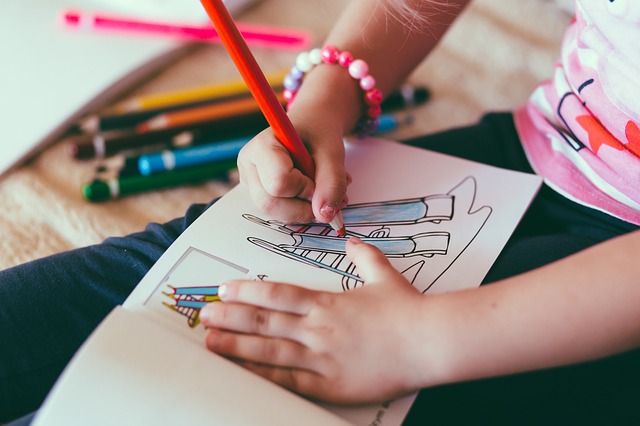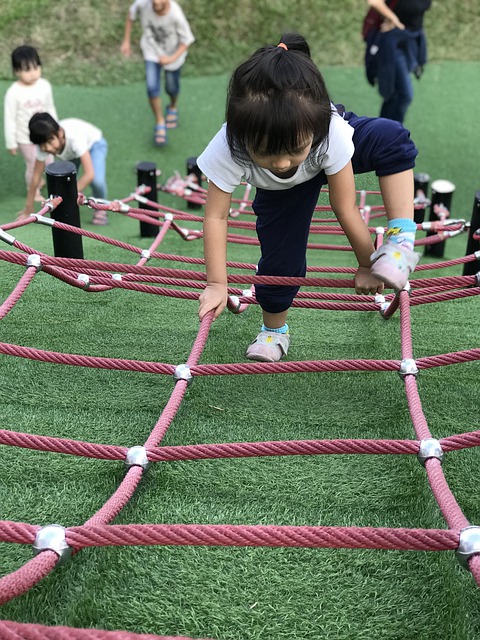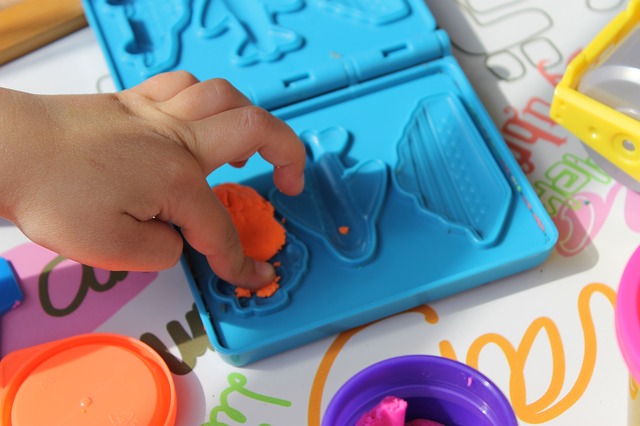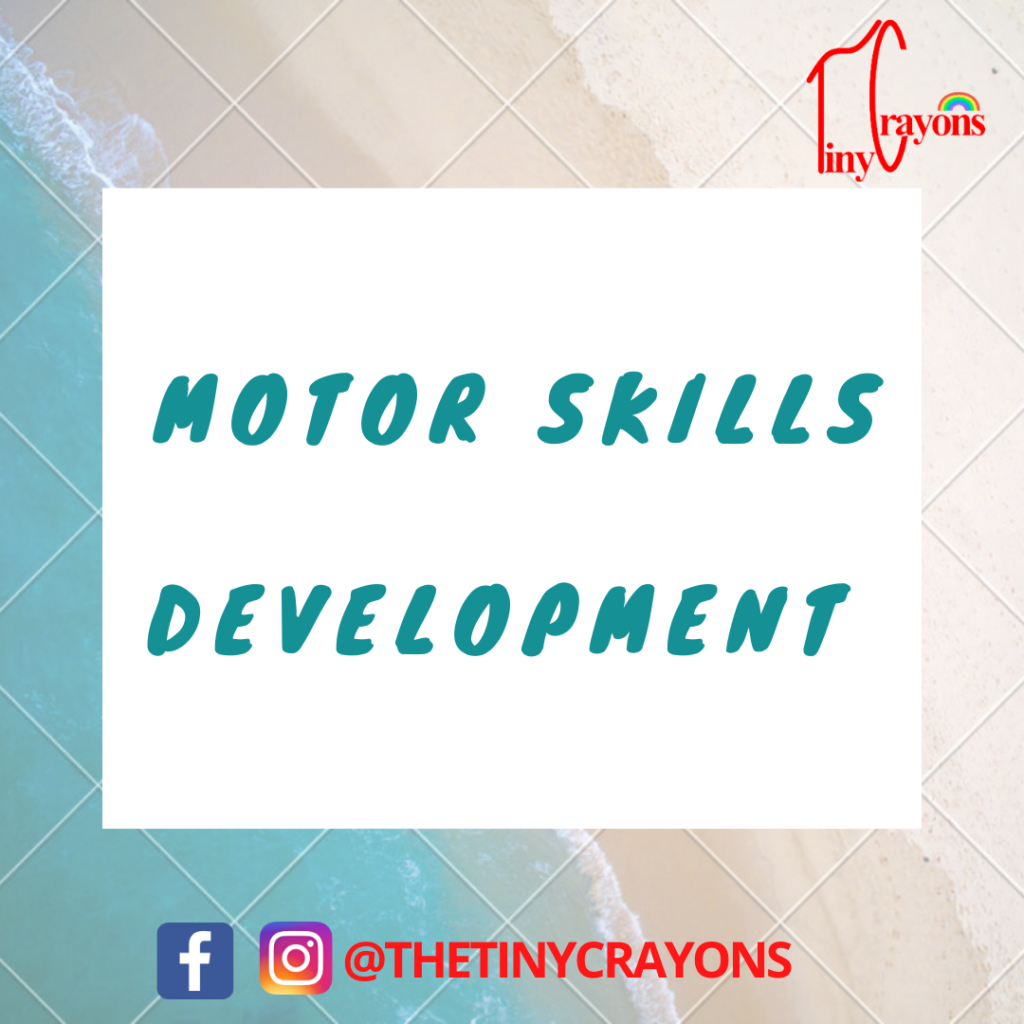Table of Contents
Meaning of Motor skills
Motor skills are actions that involve the movement of muscles in the body. It is very necessary that motor skills development take place in children timely. These are classified into two parts: gross motor skills, and fine motor skills.

Gross motor skills
Gross motor skills are the larger movements of arms, legs, feet, or the entire body (crawling, running, and jumping). Gross motor skills develop over a relatively short period of time. Most development occurs during childhood.
Fine motor skills
Fine motor skills are smaller actions, such as grasping an object between the thumb and a finger or using the lips and tongue to taste objects.
Motor skills usually develop together since many activities depend on the coordination of gross and fine motor skills. They also include eye-hand coordination skills such as ball skills (throwing, catching, kicking) as well as riding a bike or a scooter and swimming.
Gross motor skills involve the large muscles of the body that enable such functions as walking, jumping, kicking, sitting upright, lifting, and throwing a ball.
Activities required for motor skills development
There are a number of activities that are essential for motor skills development and parents can have for their children to help grow their gross motor skills. These are:

- Playing on Trampolines, hopscotch and jumping rope; are the activities that help children learn balance.
- Martial art.
- Playground play
- hitting, catching, kicking, or throwing a ball, playing football, baseball; are the activities that help develop hand-eye and foot-eye coordination.
- kangaroo hop, in which children hold something, it can be either a small ball or orange, between their knees and then jump with their feet together frontward, backwards.
- Obstacle courses; where there are many obstacles are created and children have to cross through all of them and got the destination.
- Playing wheelbarrow, in which someone holds the children’s legs while they walk on their hands on a specific route.
- Balloon and bubble plays
When your child uses their gross motor skills, they’re also working on balance, coordination, hand-eye coordination, and strengthening the neural pathways in their brain.
Gross motor skills vs. Fine motor skills
Gross motor skills involve the bigger muscles while fine motor skills are concerned with the movements of smaller muscles of the hands, fingers, and wrists. Fine motor skills are about ability.
Consider an example, your child uses gross motor skills while lifting a comb — but fine motor skills to grasp it in their hands properly.
Your child needs fine motor skills to do over critical things with perfection such as:
- Play-dough
- holding a pencil, crayons or scissors
- Filling bottle with pom-pom
- writing
- Painting
- cutting
- threading beads
- Gardening and planting
- playing with Legos
- Sewing or lacing cards
- buttoning up their shirt or jacket
- Managing coins or small items
The better their fine motor skills are, the easier they’ll be able to start writing, making drawings, etc.

Certain aspects That Cause Delays in Development of Gross Motor Skills
There are a number of important abilities that must be present for a child to hone his or her gross motor skills. Without them, gross motor skills may be delayed or undeveloped. Some of them are:
- Physical strength/tone
- Balance
- Coordination
- Stability and posture
- Motor skills learning
If you are observing your child be struggling with some of these skills, it could be a sign of a problem that requires intervention, adequate care, and treatment. Concern your doctor if you believe there might be a physical problem interfering with your child’s gross motor skill development.
If your child seems to be far behind his/her peers, a conversation with your pediatrician is rather a good idea.
Article Sources
Books
Bly, Lois. Motor Skills Acquisition Checklist. San Antonio, TX: Therapy Skill Builders, 2003.
Kurtz, Lisa A. How to Help a Clumsy Child: Strategies for Young Children with Developmental Motor Concerns. London: Jessica Kingsley Publishing, 2003.
Liddle, Tara Losquadro, and Laura Yorke. Why Motor Skills Matter: Improving Your Child’s Physical Development to Enhance Learning and Self-Esteem. New York: McGraw-Hill, 2003.
Smith, Jodene Lynn. Activities for Gross Motor Skills Development. Westminster, CA: Teacher Created Materials, 2003.
Websites
“Motor Skills Disorder.” Medicine.
Available online at http://www.emedicine.com/ped/topic2640.htm
“Gross motor skills.”
Available online at http://www.healthofchildren.com/G-H/Gross-Motor-Skills.html#ixzz6xyV0akqj


